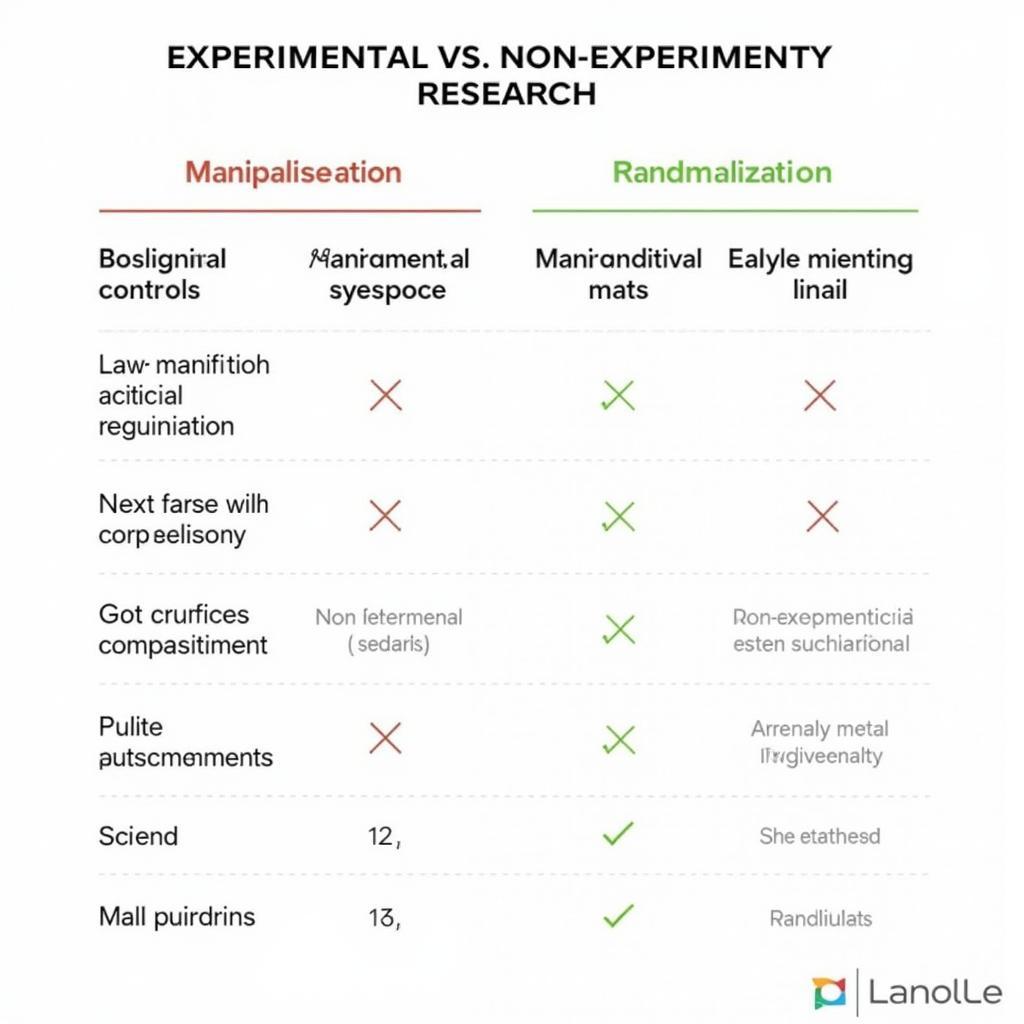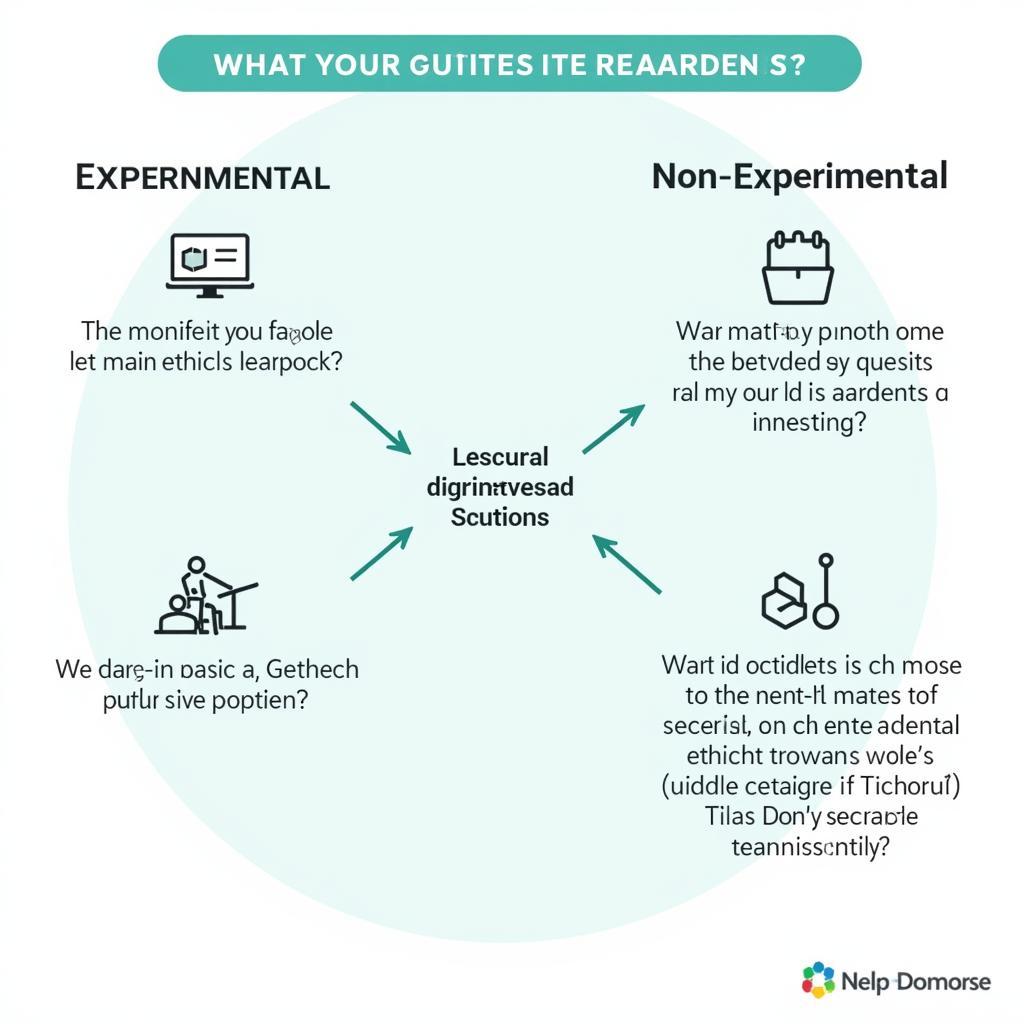Experimental and non-experimental research represent two distinct approaches to understanding the world around us, whether that world encompasses the natural, social, or even the paranormal. Both methods offer valuable insights, but they differ fundamentally in how they gather and interpret data. Choosing the right approach is crucial for drawing valid conclusions and advancing knowledge in any field. Learn about the difference between research design and research approach, too, at difference between research design and research approach.
Understanding Experimental Research
Experimental research, as the name suggests, involves conducting experiments. This method emphasizes control and manipulation. Researchers actively manipulate one or more variables, known as independent variables, to observe their effects on another variable, called the dependent variable. A classic example is testing the efficacy of a new medication. One group receives the drug (experimental group), while another receives a placebo (control group). By meticulously controlling other factors, researchers can confidently attribute any observed differences in the dependent variable (patient health) to the independent variable (the medication).
Key Characteristics of Experimental Research
- Manipulation: Researchers directly manipulate the independent variable.
- Control: Extraneous variables are controlled to isolate the relationship between the independent and dependent variables.
- Randomization: Participants are randomly assigned to different groups to ensure comparability.
- Cause-and-Effect Relationships: Experimental research aims to establish cause-and-effect relationships between variables.
Delving into Non-Experimental Research
Non-experimental research, conversely, observes phenomena without manipulating any variables. This approach is often employed when manipulating variables is impossible or unethical. Imagine researching the link between childhood trauma and adult anxiety. It would be unethical to deliberately inflict trauma on children. Instead, researchers might survey adults about their childhood experiences and current anxiety levels, seeking correlations between the two.
Different Types of Non-Experimental Research
Non-experimental research encompasses various methods, including:
- Surveys: Collecting data through questionnaires or interviews.
- Observational Studies: Observing behavior in natural settings without intervention.
- Case Studies: In-depth analysis of a single individual, group, or event.
- Correlational Studies: Examining the relationship between two or more variables without manipulating them.
 Experimental vs. Non-Experimental Research Comparison Chart
Experimental vs. Non-Experimental Research Comparison Chart
When to Use Each Method: Choosing the Right Approach
The choice between experimental and non-experimental research depends on the research question. If you want to establish a cause-and-effect relationship, experimental research is ideal. If, however, manipulation is not feasible or ethical, or if your goal is to explore relationships or describe phenomena, non-experimental research is more appropriate. For example, a researcher might choose an experimental approach to study the effects of a new paranormal investigation tool, comparing its effectiveness against established methods in a controlled setting. In contrast, a non-experimental approach would be better suited for studying the reported experiences of individuals who claim to have encountered ghosts, relying on interviews and surveys to gather data. Find information about how many sources you need for a research paper at how many sources do you need for a research paper.
 Choosing the Right Research Method Flowchart
Choosing the Right Research Method Flowchart
Navigating the Nuances: A Deeper Dive into Research
Dr. Evelyn Reed, a leading expert in parapsychology, offers this insight: “While experimental research provides the strongest evidence for causality, non-experimental methods are essential for exploring complex phenomena, particularly in the realm of the paranormal, where controlled experiments are often challenging to design.”
This sentiment highlights the importance of understanding the nuances of each approach. Experimental research, though powerful, may not always capture the complexity of real-world situations. Non-experimental research, while less rigorous in establishing causality, offers valuable insights into complex phenomena, especially when direct manipulation is impossible.
Dr. Alistair Crowe, a seasoned researcher in anomalous phenomena, adds, “Often, the most fruitful approach involves a combination of both methods. Initial non-experimental studies can identify patterns and generate hypotheses, which can then be tested rigorously through experimental designs.” Explore more research topics with our dazzling dream field research article at dazzling dream field research. More specific information on research methods for criminal justice and criminology can be found at research methods for criminal justice and criminology 8th edition.
Conclusion
Understanding the difference between experimental and non-experimental research is crucial for anyone seeking to understand the world, both seen and unseen. By carefully considering the strengths and limitations of each approach, researchers can choose the method best suited to their specific research question and contribute meaningfully to our understanding of the universe.
FAQ (Frequently Asked Questions)
-
What is the main difference between experimental and non-experimental research? The main difference lies in the manipulation of variables. Experimental research involves manipulating an independent variable to observe its effect on a dependent variable, while non-experimental research observes variables without manipulation.
-
Which type of research is better? Neither type is inherently “better.” The best choice depends on the research question and the feasibility of manipulation.
-
Can both methods be used together? Yes, researchers often combine both approaches. Non-experimental research can be used to explore a phenomenon and generate hypotheses, which can then be tested through experimental research.
For assistance, contact us 24/7 at Phone: 0904826292, Email: research@gmail.com or visit us at No. 31, Alley 142/7, P. Phú Viên, Bồ Đề, Long Biên, Hà Nội, Việt Nam. Our tirzepatide powder for research may interest you, available at tirzepatide powder for research.